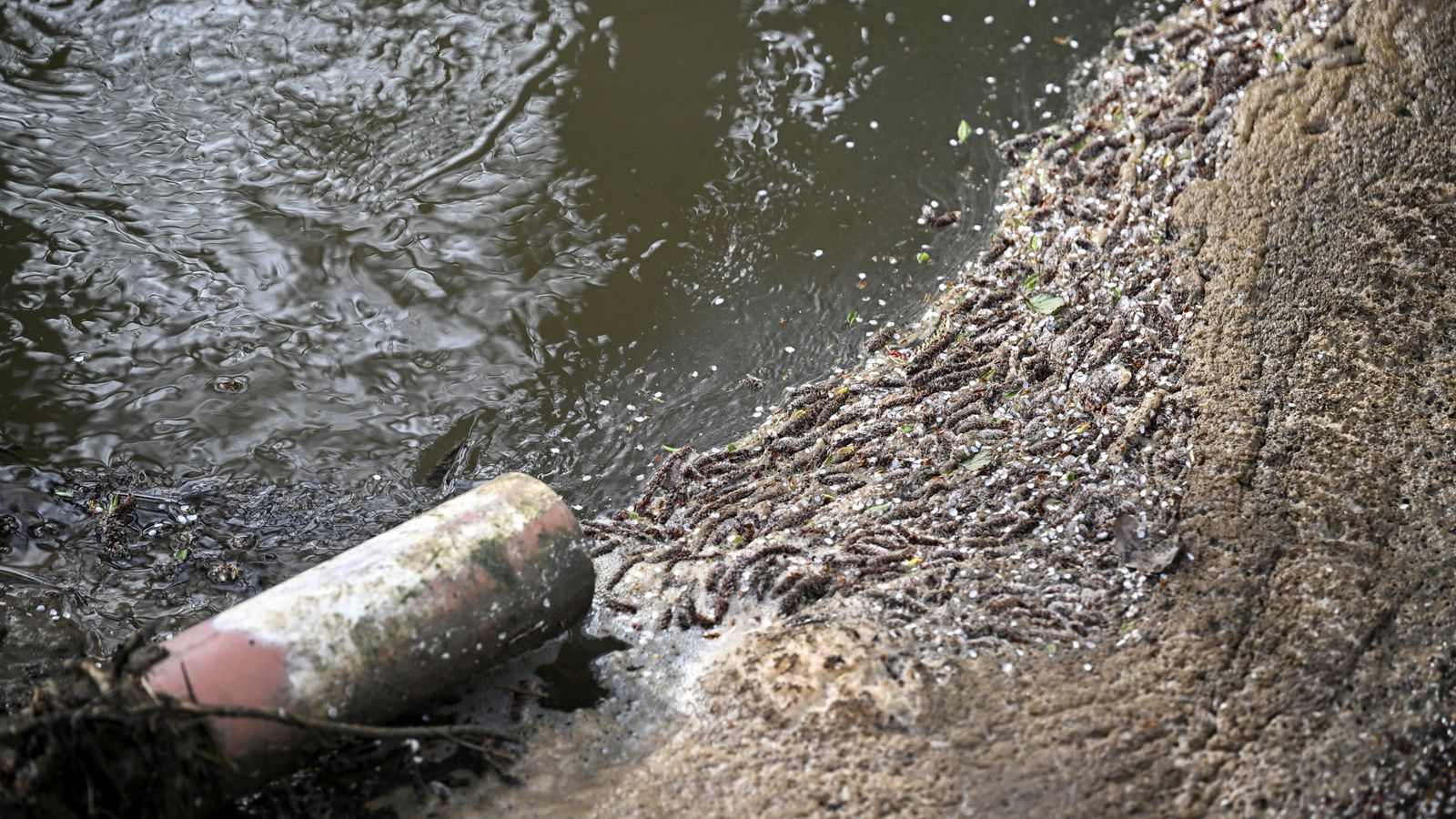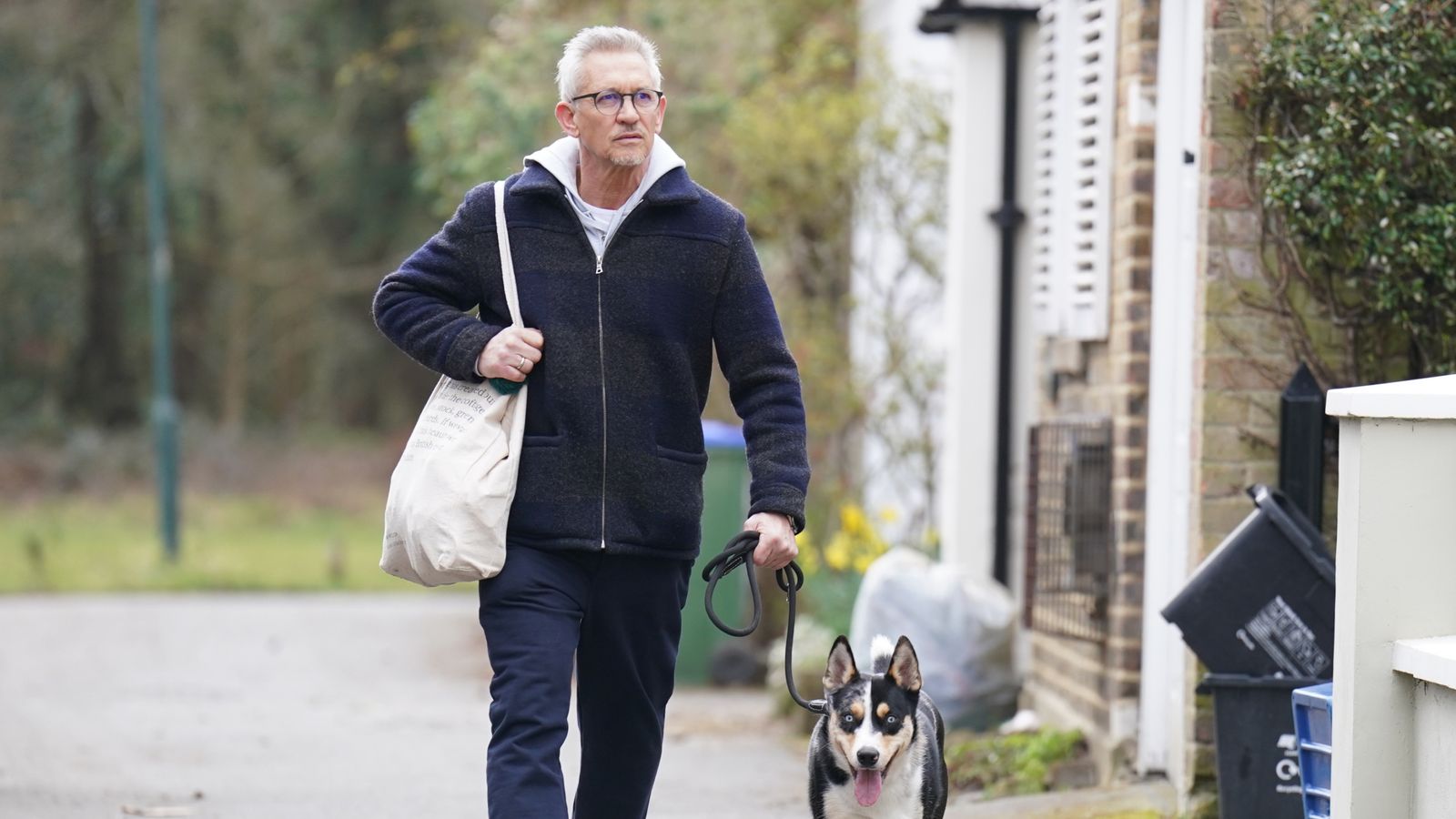Public failed by water regulators and government as bills rise, spending watchdog says


Water regulators and the government have failed to provide a trusted and resilient industry at the same time as bills rise, the state spending watchdog has said.
Public trust in the water sector has reached a record low, according to a report from the National Audit Office (NAO) on the privatised industry.
Not since monitoring began in 2011 has consumer trust been at such a level, it said.
At the same time, households face double-digit bill hikes over the next five years.
The last time bills rose at this rate was just before the global financial crash, between 2004-05 and 2005-06.
Regulation failure
All three water regulators – Ofwat, the Environment Agency and Drinking Water Inspectorate – and the government department for environment, food and rural affairs (Defra) have played a role in the failure, the NAO said, adding they do not know enough about the condition or age of water infrastructure and the level of funding needed to maintain it.
Since the utilities were privatised in 1989, the average rate of replacement for water assets is 125 years, the watchdog said. If the current pace is maintained, it will take 700 years to replace the existing water mains.
Water firms have grappled with leaky pipes and record sewage outflows into UK waterways in recent years, with enforcement action under way against all wastewater companies.
Despite there being three regulators tasked with water, there is no one responsible for proactively inspecting wastewater to prevent environmental harm, the report found.
Instead, regulation is reactive, fining firms when harm has already occurred.
Financial penalties and rewards, however, have not worked as water company performance hasn’t been “consistent or significantly improved” in recent years, the report said.
‘Gaps, inconsistencies, tension’
The NAO called for this to change and for a body to be tasked with the whole process and assets. At present, the Drinking Water Inspectorate monitors water coming into a house, but there is no entity looking at water leaving a property.
Similarly no body is tasked with cybersecurity for wastewater businesses.
As well as there being gaps, “inconsistent” watchdog responsibilities cause “tension” and overlap, the report found.
The Environment Agency has no obligation to balance customer affordability with its duty to the environment when it assesses plans, the NAO said.
Please use Chrome browser for a more accessible video player

0:53
Thames Water boss can ‘save’ company
Company and investment criticism
Regulators have also been blamed for failing to drive enough funding into the water sector.
From having spoken to investors through numerous meetings, the NAO learnt that confidence had declined, which has made it more expensive to invest in companies providing water.
Even investors found Ofwat’s five-yearly price review process “complex and difficult”, the report said.
Financial resilience of the industry has “weakened” with Ofwat having signalled concerns about the financial resilience of 10 of the 16 major water companies.
Most notably, the UK’s largest provider, Thames Water, faced an uncertain future and potential nationalisation before securing an emergency £3bn loan, adding to its already massive £16bn debt pile.
Read more from Sky News:
Hundreds of jobs at risk as The Original Factory Shop launches survival plan
Government to decide on ‘postcode pricing’ plan for electricity bills by summer
Water businesses have been overspending, with only some extra spending linked to high inflation in recent years, leading to rising bills, the NAO said.
Over the next 25 years, companies plan to spend £290bn on infrastructure and investment, while Ofwat estimates a further £52bn will be needed to deliver up to 30 water supply projects, including nine reservoirs.

What else is going on?
From today, a new government law comes into effect which could see water bosses who cover up illegal sewage spills imprisoned for up to two years.
Such measures are necessary, Defra said, as some water companies have obstructed investigations and failed to hand over evidence on illegal sewage discharges, preventing crackdowns.
Meanwhile, the Independent Water Commission (IWC), led by former Bank of England deputy governor Sir Jon Cunliffe, is carrying out the largest review of the industry since privatisation.
What the regulators and government say?
In response to the report, Ofwat said: “The NAO’s report is an important contribution to the debate about the future of the water industry.
“We agree with the NAO’s recommendations for Ofwat and we continue to progress our work in these areas, and to contribute to the IWC’s wider review of the regulatory framework. We also look forward to the IWC’s recommendations and to working with government and other regulators to better deliver for customers and the environment.”
An Environment Agency spokesperson said: “We have worked closely with the National Audit Office in producing this report and welcome its substantial contribution to the debate on the future of water regulation.
“We recognise the significant challenges facing the water industry. That is why we will be working with Defra and other water regulators to implement the report’s recommendations and update our frameworks to reflect its findings.”
A Defra spokesperson said: “The government has taken urgent action to fix the water industry – but change will not happen overnight.
“We have put water companies under tough special measures through our landmark Water Act, with new powers to ban the payment of bonuses to polluting water bosses and bring tougher criminal charges against them if they break the law.”
Water UK, which represents the water firms, has been contacted for comment.


